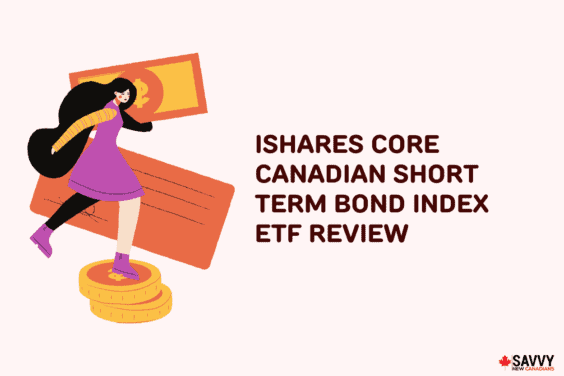Most stocks on the market are broken down into two categories: growth or value. Many investors correlate growth stocks with the tech sector, but this isn’t always the case.
By definition, a growth stock is any stock that is anticipated to significantly outperform the average growth of the broader market. In the US, stocks are typically measured against the performance of the benchmark S&P 500 index. In Canada, this benchmark is usually the S&P/TSX 60 index.
Growth stocks in Canada are a little different from growth stocks in the US. There are no big tech companies north of the border, nor are there many electric vehicle makers or semiconductor brands.
A sure sign of a growth stock is if the company foregoes profitability to build the business as fast as possible. These stocks also usually have high forward-looking price multiples that anticipate the potentially rapid growth of future earnings.
While outsized growth and returns are the allure of growth stocks, they do come with some risks as well. If growth slows unexpectedly, the stock price can take a massive hit.
Likewise, during times of economic volatility, growth stocks are usually the first to get slashed. As we saw in 2022, higher interest rates and a bear market can cause growth stocks to fall considerably from previous highs.
In this article, we will discuss our list of the ten (10) best Canadian growth stocks to buy in April 2024.
10 Best Growth Stocks in Canada for 2024
1. Shopify Inc
Here are some key facts about Shopify:
- Ticker Symbol: SHOP.TO
- Market Cap: $136.283
- PE Ratio: N/A
- 52-Week Trading Range: $58.76 – 123.20
- Industry: eCommerce Services
The first stock on our list needs no introduction. Shopify is the largest tech company in Canada by market capitalization. It was founded in 2006 in Ottawa, Ontario, by current CEO Tobias Lutke.
This Canadian growth stock rewarded early investors with massive growth during the pandemic. Following a post-pandemic stock price downturn, the company has turned things around and seen a nearly 70% increase over the past year.
Shopify specializes in providing a proprietary eCommerce platform for online merchants. As of 2023, Shopify was used by over 4.4 million websites in 175 countries around the world.
2. Constellation Software Inc.
Here are some key facts about Constellation Software:
- Ticker Symbol: CSU.TO
- Market Cap: $79.296
- PE Ratio: 103.85
- 52-Week Trading Range: $2,391.34 – 3,856.00
- Industry: Software
Constellation Software is a Toronto-based software conglomerate that was founded in 1995 by current Chairman Mark Leonard. The company specializes in acquiring and operating businesses for the long term.
Since 1995, Constellation Software has acquired more than 500 different companies. It operates these under six distinct segments, which make up the structure of Constellation Software. These operating segments are involved in both the private and public sectors in Canada.
As of 2024, Constellation Software is the most expensive stock on the TSX by share price. Shareholders even earn a modest 0.14% dividend yield.
3. Waste Connections Inc
- Ticker Symbol: WCN.TO
- Market Cap: $59.748 billion
- PE Ratio: 57.48
- 52-Week Trading Range: $174.74 – 234.24
- Industry: Waste management
Waste Connections Inc. is a waste management company founded in 1997. Based in Ontario, the company offers waste collection and disposal services across North America.
As a component of the S&P/TSX 60, Waste Connections Inc. operates in both the US and Canada, and is the third largest waste management company in North America.
4. Power Corporation of Canada
- Ticker Symbol: POW.TO
- Market Cap: $24.944
- PE Ratio: 11.12
- 52-Week Trading Range: $32.33 – 40.30
- Industry: Financial Services
Power Corporation of Canada is an international holding company based in Canada that operates in several different sectors. Focusing on financial services, Power Corporation of Canada is best known to many Canadians as an investor in the personal finance app Wealthsimple.
Power Corporation of Canada has over $260 billion in assets under management. A significant portion of those assets are a part of the Wealthsimple platform, which has over 3 million clients.
5. goeasy Ltd
Here are some key facts about goeasy:
- Ticker Symbol: GSY.TO
- Market Cap: $2.664 billion
- PE Ratio: 11.07
- 52-Week Trading Range: $87.00 – 180.10
- Industry: Financial Services
goeasy Ltd is an Ontario-based financial services company established in 1990 as RTO Enterprises. It focuses on three distinct divisions of operations: easyfinancial, easyhome, and LendCare.
Of the three, easyfinancial is the most widely known brand. It provides mortgages and other loans to non-prime borrowers who traditional banks would otherwise turn down. The company has over 400 locations across Canada and provides loans to over 1.3 million Canadians.
6. Descartes Systems Group Inc
Here are some key facts about Descartes Systems:
- Ticker Symbol: DSG.TO
- Market Cap: $10.665 billion
- PE Ratio: 70.73
- 52-Week Trading Range: $95.03 – 127.91
- Industry: Software
Descartes is a Canadian multinational software company that provides logistics, supply chain, and cloud-based software to enterprises and organizations.
This SaaS company was founded in 1981 in Waterloo, Ontario. Since then, its software platform has been adopted by more than 26,000 customers in over 160 countries worldwide.
Descarter’s client list includes corporations such as Delta, American Airlines, Air Canada, British Airways, UPS, FedEx, DHL, Best Buy, Home Depot, Toyota, BASF, and Coca-Cola.
7. Sprott Inc.
Here are some key facts about Sprott Inc:
- Ticker Symbol: SII.TO
- Market Cap: $1.249 billion
- PE Ratio: 22.37
- 52-Week Trading Range: $38.43-52.02
- Industry: Asset Management
Sprott Inc. is a Canadian asset management company specializing in investing in precious metals and energy transition strategies.
You might have seen some of their exchange-listed products. Sprott offers a long list of investment trusts that provide exposure to gold, silver, platinum, and palladium.
8. Aritzia
- Ticker Symbol: ATZ.TO
- Market Cap: $4.084 billion
- PE Ratio: 45.40
- 52 Week Range: $20.67 – $44.88
- Industry: Clothing
Founded in Vancouver in 1984, Aritzia is a clothing brand that focuses on the female demographic. The company sells several in-house brands such as Wilfred, TNA, and Babaton. In 2021, the company also entered the male fashion space through the acquisition of Reigning Champ.
The company operates over 100 stores in both Canada and the United States. An additional 100 sites have been identified in the US for expansion, with 8 to 10 expected to open this year.
9. Lightspeed Commerce Inc
Here are some key facts about Lightspeed:
- Ticker Symbol: LSPD.TO
- Market Cap: $2.87 billion
- PE Ratio: N/A
- 52-Week Trading Range: $16.94 – 28.73
- Industry: Financial Services
Lightspeed is a Montreal-based company that specializes in eCommerce software and point-of-sale payment systems. Its stock is dual-listed on the TSX and the New York Stock Exchange.
This fintech company has partnered with some of the largest brands around the world, including Five Guys, Facebook, Uber, TikTok, and Nordstrom.
10. CargoJet
Here are some key facts about CargoJet:
- Ticker Symbol: CJT.TO
- Market Cap: $1.851
- PE Ratio: 50.57
- 52-Week Trading Range: $76.50 – 124.94
- Industry: Cargo and Logistics
CargoJet is a Mississauga-based cargo airline company that was founded in 2002. While shipping and logistics might not be a sector usually associated with growth stocks, CargoJet has a history of well outperforming the market.
As of 2024, CargoJet had 41 airplanes in its fleet that service 71 daily routes in multiple locations across Canada, the United States, Europe, and Asia. CargoJet pays an annualized dividend yield of 0.89%.
What is a Growth Stock?
Growth stocks are the shares of a company that are expected to grow at a much faster rate than the market. Some institutions define a growth stock as a company with 5-year annual sales growth of more than 15%.
The key is consistent, outsized revenue increase during the company’s period of rapid expansion. Remember, this does not have to be profits. Part of the reason the company is growing so fast is that it is re-investing its revenue back into its own growth.
How to Buy Growth Stocks in Canada in 2024
You can buy growth stocks on any brokerage platform in Canada. If you are consistently buying shares of growth stocks, consider using one of many Canadian discount brokerages to save on commission fees and grow your long-term gains.
Qtrade

Up to $150 sign-up bonus
Trade stocks, ETFs, options, bonds, etc.
Excellent platform for newbies and seasoned investors
Competitive trading fees
Excellent customer service
Questrade

Trade stocks, ETFs, options, FX, bonds, CFDs, mutual funds, etc.
Get $50 trade credit with $1,000 funding
Low and competitive trading fees
No quarterly inactivity fees
Access to advanced tools and trading data
Top platform for advanced traders
Transfer fees waived
How to Choose Growth Stocks in Canada
There are several things you can look at to determine which stocks are the best growth stocks in Canada. Let’s start with high forward-looking price multiples. Growth stocks tend to have high Price to Earnings ratios because the stock price anticipates the company’s future revenue growth.
Growth companies tend to have unique and popular products with a wide industry moat and strong market share. Think about emerging industries like electric vehicles and how much growth a company like Tesla has seen for both its company and stock.
Another sign of potential growth is to look at its annual and quarterly revenue for the past five years. If the company is showing consistent year-over-year sales increases, then it is likely on the right track to exponential future growth.
Downsides of Growth Stocks
Many investors avoid growth stocks due to their volatility. Several things can have a direct impact on the performance of growth stocks, including higher interest rates, increased competition, or slowing revenue growth.
In times of economic volatility, value stocks tend to outperform growth stocks. Growth stocks typically do not pay dividends to shareholders, so any profit is made from capital gains.
Buying growth stocks at high price multiples can be a risky downside. We tend to see growth stocks drop sharply if the company reports a bad quarter of earnings. If there is perceived declining growth, many investors will abandon ship and sell their position in search of the next high-growth company.
Want stock tips from a stock advisor? Check The Motley Fool.
Stock Advisor Canada

Unlimited access to expert stock recommendations
Almost doubled the S&P/TSX Index over last 9 years
New stock picks every month
50,000+ members
$1.90 weekly (66% discount)
Methodology
Seek out companies with wide moats, popular products or services, and consistent revenue growth. Value stocks are more stable, but with growth stocks, the picture can change from quarter to quarter. It is more important to do in-depth research on growth stocks. This article is meant to provide a starting point in Canadian growth stocks, but not as financial advice.
Related: Best Canadian dividend stocks.






